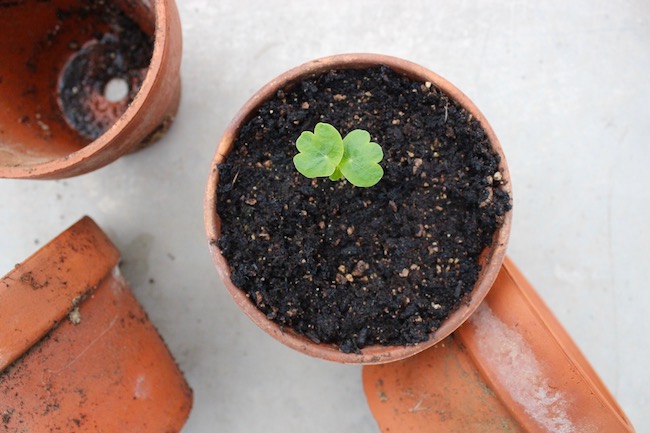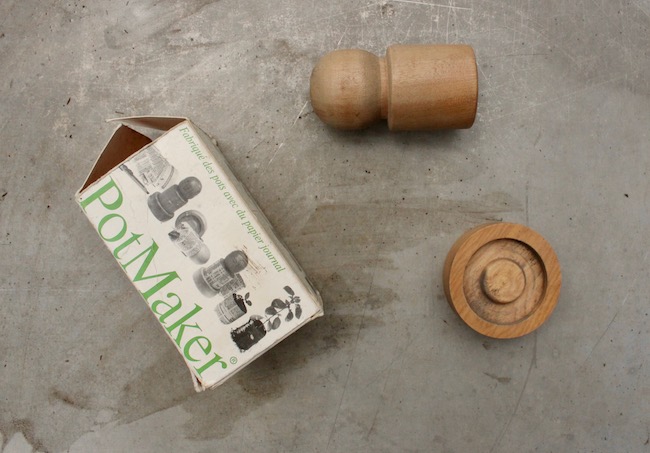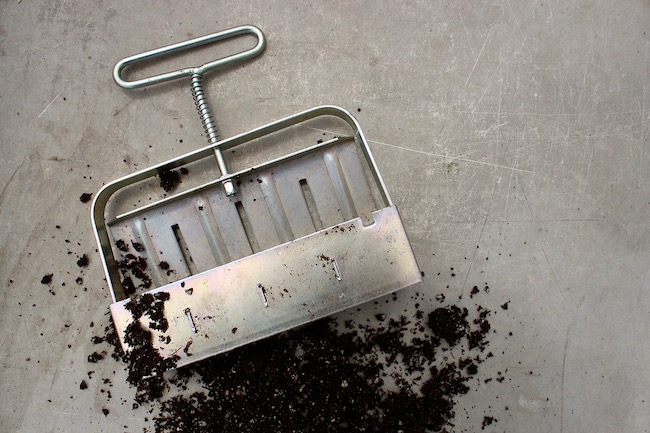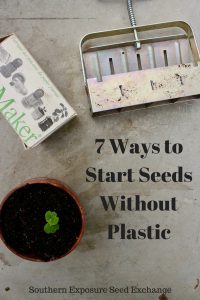Frequently the line between gardener and environmentalist becomes blurred. We plant pollinator gardens and build insects hotels to give smaller creatures a helping hand. We sow seeds and plan our meals to reduce our food miles and carbon footprint. We opt for organic and heirloom seed or dedicate time to learning to save our own. Each year however, I’m startled to see just how much plastic is used in the making of a modern garden. Hoses, sprinklers, drip tape, pots, flats, tools, greenhouses, you name it and it probably is at least partially made of plastic.
While many of these items drastically increase the productivity of our gardens it’s also common sense that their are non-plastic alternatives for many of them. These alternatives are what our ancestors in the not so distance past once put to use to produce the vast majority of their family’s diet. I’m certainly not saying we should forgo the use of hoses and greenhouses just that we should get a little creative in ways we can. Use old, salvaged windows for cold frames instead of plastic paneling. Opt for tools made of metal and wood where possible. Probably easiest of all, check out some of these non-plastic pot alternatives.
Terracotta Pots

Terracotta or other ceramic pots can be a beautiful and environmentally friendly way to start seeds. They’re much more expensive than other methods but if you have a small garden they may be worth it because they can be used year after year. You can also sometimes find them at yard sales and thrift stores which may allow you to slowly and cheaply build a collection.
Peat Pots
Peat pots are probably one of these easiest plastic alternatives. They can be purchased at any garden supply store and you can plant the whole thing! It’s quick, easy and doesn’t disturb your seedling. However it should be noted that some believe using peat may not be as environmentally friendly as other options as it is quite slow growing and peat pots are single use.
Gourd Shells
Not the most common choice, gourd shells actually make excellent pots. Gourd shells will break down some as your seedling grows however they should still probably be removed upon transplanting. They can of course be composted after you’re done with them.
Newspaper Pots

An easy DIY solution is to fold your own newspaper pots. It takes a little time to make them at home but just like peat pots you can plant the whole thing. You can find tutorials on Youtube for folding your own or they sell wooden newspaper pot makers, like the one pictured above, that are cheap and easy to use.
Wooden Flats
Prior to the mass production of plastic, wooden flats were the go to for many farmers and gardeners. Today you probably won’t find them at your garden supply center however there are plans available online to build your own.
Egg Shells and Egg Cartons
Starting seeds in egg shells and cartons is an excellent way to put some household waste to good use. However it should be noted that they are more suited to plants that grow slowly as plants like to tomatoes will quickly become too large and need to be potted up.
Soil Blocks

One of my favorite plastic free options is using a soil blocker. It takes a little time and practice to make soil blocks and you’ll still need a to find tray to set them in but they’re well worth the time up front. Using soil blocks eliminates the problem of root bound seedlings. This is because roots won’t just grow into open air. They stop at the edge of a soil block instead of growing around the plant like they do in a pot. Soil blocks also make planting easier. There’s no trying to pinch plants out of plastic trays. This minimal handling is faster for you and better for the plants.
**Note**
If you choose to plant in a pot that goes directly into the ground with your seedling it’s important to make sure that the edges are not above the soil. This will wick moisture away from the plants roots. If your pot is too tall just tear off the top edge before planting.
Arguably plastic pots are a relatively small portion of the world’s plastic problem. However for many of us these swaps to more sustainable alternatives are not difficult or costly. In fact they can save you money! So why not? It may seem like a waste of time but when many people make small changes there are big impacts.
How have you reduced plastic in your garden?
Pin it for later.

